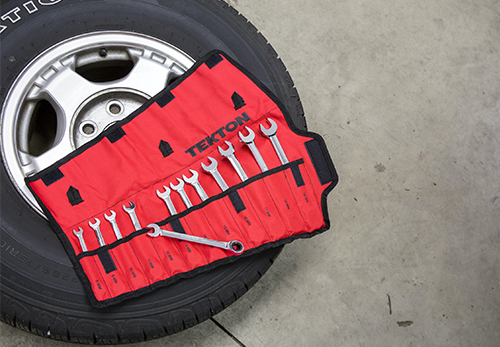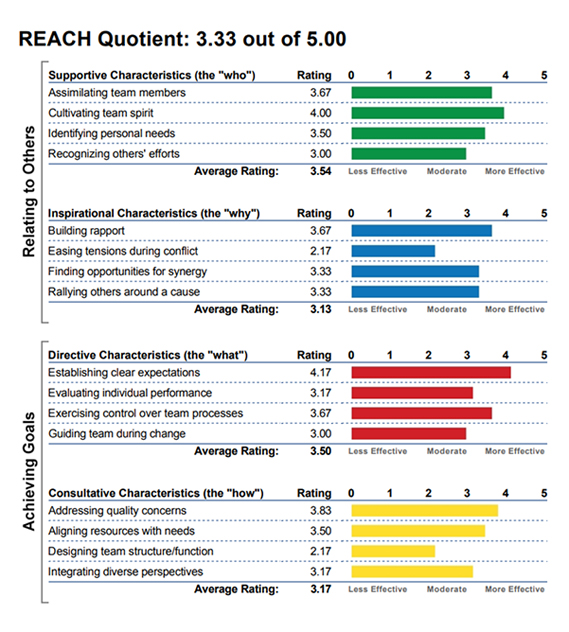















Download the REACH Technical Report here.
REACH measures agility to adapt to the needs of different people, situations and tasks.
REACH provides clear insights into agility, preferences and skills of:
REACH combines the science of analysing human traits using psychometrics together with measuring agility (REACH) that can be grown by developing awareness, skills, resilience and a growth mindset.
REACH is measured as a Quotient (a score out of 5) and is visually represented by an individual's REACH Zone.
An individual's primary archetype is identified as one of 4 primary styles: Counselor (green), Coach (blue), Advisor (yellow) and Driver (red), growing agility into the other styles is achieved by developing the skills most commonly associated with the other primary styles. As a person grows their agility to stretch into the other styles, they grow their REACH and in turn improve their effectiveness in different situations.

REACH is used by organizations to improve performance and engagement today, and build capability to thrive in the future of work.
The REACH Ecosystem is the solution to help people thrive in our Volatile, Unpredictable, Complex and Ambiguous (VUCA) world with clarity and simplicity.
The REACH Framework explores two dimensions of Trait Characteristics – The Relating Dimensions and Achieving Dimensions:
Relating Dimensions describe how individuals tend to interact with others in common settings.
The 5 Relational Dimensions in REACH are:
Achieving Dimensions describe how individuals approach tasks and goals under normal circumstances.
The Achieving Dimensions in REACH are:
The REACH framework analyses 16 skills grouped into four clusters:
Summary - When people shift into different REACH styles (Counsellor, Coach, Driver, Advisor), they have correspondingly different brain functions and neurochemical release of Dopamine, Testosterone, Estrogen/Oxytocin and Serotonin. Read the technical analysis here.
Summary - REACH reporting of human characteristics (psychometrics) and REACH Skills (that result in growth in agility) are reliable. The most common measure used is the Cronbach Alpha, in which a score of .7 is considered ‘reliable’ by industry standards. The Psychometric aspects of REACH has a Chronbach Alpha of around .8. The REACH Skills aspects has a Cronbach Alpha of .95 – both well above industry reliability standards. Read the technical analysis here.
REACH research demonstrates that human traits remain reasonably constant in test/re-test research; however, REACH Quotient (agility grown through skills development and increased awareness) can grow over time. Read the technical analysis here.
Summary:
REACH Styles identify with the following Strengths more often than others:
Counsellor: ‘Includer’, ‘Belief’ and ‘Harmony’
Coach: ‘Activator’, ‘Communication’ and ‘Woo’ (Winning Others Over)
Driver: ‘Self Assurance’, ‘Futuristic’ and ‘Competition’
Advisor: ‘Deliberative’, ‘Focus’ and ‘Consistency’
Higher REACH Quotient is associated with ‘Communication’ and ‘Winning Others Over’ strengths and the ‘Influence’ domain.
Most organizations can reduce recruitment and development overheads by around 70%. Use the cost savings calculator here to see how your costs will reduce with REACH.